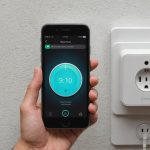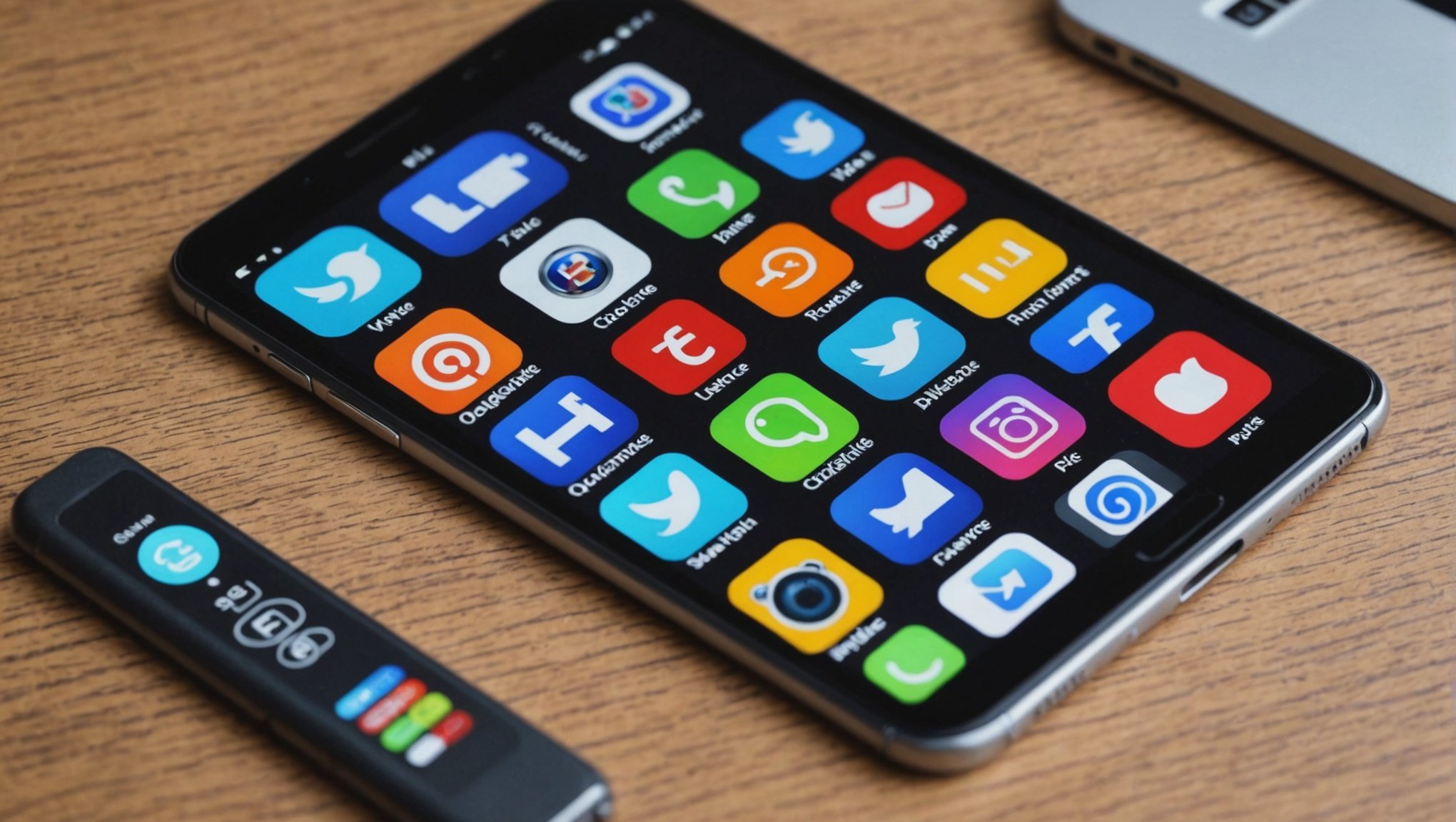In today’s fast-paced world, maximizing productivity is essential. With mobile apps becoming an integral part of our daily routines, organizing them effectively can make a significant difference in how efficiently you manage your time and tasks. This article explores the best techniques for organizing mobile apps to enhance your productivity, focusing on tools like Notion, Google Tasks, and other productivity apps. Whether you use Android or another operating system, these strategies can help you create a more streamlined and efficient workflow.
Understanding the Importance of App Organization
Effective app organization is more than just neatness; it’s about creating a system that helps you access your tools quickly and efficiently. When your apps are well-organized, you spend less time searching for the right tools and more time getting things done. This can be especially beneficial for tasks related to project management, personal productivity, and task management.
Also read : How Can You Use Your Smartphone to Set Up a Home Theater System with Surround Sound?
Using productivity apps like Notion, Google Calendar, and Google Tasks, you can integrate time tracking, task lists, and calendar events seamlessly into your daily routine. These apps often come with a variety of features, including cloud storage, which can be pivotal in managing your work.
For example, Notion is highly versatile and can be used for creating to-do lists, tracking projects, and even storing documents. By organizing your apps in a way that complements your workflow, you can ensure that you’re maximizing the efficiency of each tool you use.
Additional reading : What Are the Best Apps for Using Your Smartphone to Manage Multi-Room Smart Home Audio Systems?
Key Techniques for Organizing Your Mobile Apps
Categorize by Function
One of the simplest yet most effective techniques for organizing your mobile apps is to categorize them by their function. Grouping apps by their purpose can save you a significant amount of time.
For example, you might have categories like:
- Productivity: Notion, Google Tasks, Evernote
- Communication: Slack, WhatsApp, Gmail
- Entertainment: Spotify, Netflix, YouTube
By creating folders and grouping similar apps together, you make them easier to find and use. This method helps reduce the time you spend searching for apps, allowing you to focus more on your work.
Prioritize Frequently Used Apps
Keep the apps you use most frequently on your home screen or in a prominent position. This technique ensures that the tools you need are always within reach. For instance, if you frequently use Google Calendar to manage your appointments and deadlines, having it on your home screen can improve your time management.
Additionally, consider setting up widgets for apps like Google Tasks or a calendar widget that displays upcoming events. Widgets can provide quick access and at-a-glance information, further enhancing your productivity.
Utilize App Features and Integrations
Many productivity apps offer integrations with other tools, enhancing their functionality. For example, Notion integrates with Google Calendar, enabling you to sync your tasks and deadlines. This synchronization ensures you stay on top of your schedule without needing to switch between apps constantly.
Google Tasks integrates seamlessly with Google Calendar, allowing you to add tasks that automatically appear on your calendar. This interconnectivity ensures that you’re always aware of what needs to be done and when.
Regularly Declutter Your Apps
Over time, it’s easy for your phone to become cluttered with apps you no longer use. Regularly reviewing and removing unnecessary apps can help keep your device streamlined and efficient. This process not only frees up storage space but also ensures that you only have access to the tools that truly enhance your productivity.
Consider setting aside time every month to go through your apps and delete those that are obsolete or redundant. This practice can significantly improve your device’s performance and your overall productivity.
Leveraging Productivity Apps to Enhance Efficiency
Notion: A Versatile Productivity Tool
Notion is a powerful tool that combines note-taking, task management, and project management into one cohesive platform. Its versatility makes it one of the best apps for enhancing productivity. Users can create databases, to-do lists, and even collaborative workspaces.
Key features of Notion include:
- Customization: Create tailored templates for various tasks.
- Collaboration: Share documents and projects with team members.
- Flexibility: Use it for personal and professional tasks.
The ability to customize Notion to fit your specific needs makes it an invaluable app for boosting productivity. Whether you’re managing a complex project or keeping track of personal goals, Notion’s comprehensive features can help you stay organized.
Google Tasks: Simple Yet Effective
Google Tasks is a straightforward task management app that integrates seamlessly with other Google services like Gmail and Google Calendar. Its simplicity makes it an excellent choice for users who need an uncomplicated way to keep track of tasks and deadlines.
Key features of Google Tasks include:
- Integration: Sync with Google Calendar to keep tasks and events in one place.
- Ease of Use: Quickly add and manage tasks from your email or calendar.
- Accessibility: Available on both mobile and web, ensuring you can access your tasks anywhere.
For those looking for a free, easy-to-use task management app, Google Tasks is a top contender. Its integration with other Google services makes it a seamless part of your productivity toolkit.
Google Calendar: Beyond Scheduling
Google Calendar is more than just a scheduling tool; it’s a comprehensive time management app that can significantly enhance your productivity. By integrating it with other tools like Google Tasks and Notion, you can create a holistic view of your commitments and deadlines.
Key features of Google Calendar include:
- Event Scheduling: Set up meetings, reminders, and appointments.
- Integration: Sync with other productivity apps for a unified workflow.
- Customization: Color-code events and set up recurring tasks.
Using Google Calendar effectively can help you manage your time better and ensure that you never miss an important deadline or meeting.
Exploring Free and Paid Plans
Free Plan Advantages
Many productivity apps offer free versions with essential features that can significantly boost your productivity. Apps like Notion, Google Tasks, and Google Calendar offer robust free plans that are sufficient for most users.
For example, Notion’s free plan includes:
- Unlimited pages and blocks.
- Up to 5 guests for collaboration.
- Basic integrations with other apps.
Google Tasks and Google Calendar are entirely free, providing essential task management and scheduling features without any cost. Using these free tools can help you achieve a high level of productivity without investing in paid plans.
Paid Plans and Their Benefits
While free plans offer many features, paid plans often provide additional benefits that can further enhance your productivity. For instance, Notion’s paid plans include advanced collaboration tools, unlimited file uploads, and priority support.
Key benefits of paid plans might include:
- Advanced features and integrations.
- Enhanced security and support.
- Increased storage and collaboration capabilities.
For users who need more advanced features or manage complex projects, investing in a paid plan can be worthwhile. The additional functionalities can provide a better return on investment by streamlining workflows and improving efficiency.
In conclusion, organizing your mobile apps effectively can have a profound impact on your productivity. By categorizing apps by function, prioritizing frequently used tools, leveraging app features and integrations, and regularly decluttering, you can create a streamlined digital environment that supports your workflow.
Productivity apps like Notion, Google Tasks, and Google Calendar offer a range of features that, when utilized correctly, can significantly enhance your efficiency. Whether you opt for free plans or invest in paid versions, these tools provide the necessary capabilities to manage your time and tasks effectively.
Ultimately, the best techniques for organizing your mobile apps involve creating a system that works for you. By implementing these strategies, you can ensure that you’re maximizing the potential of your apps and achieving your productivity goals.











